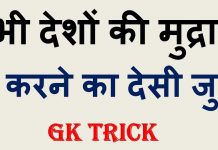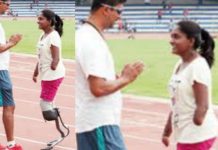Now, Bombay, Madras and Calcutta High Courts to bear city names
The Union Cabinet approved a change in the names of the Madras, Bombay and Calcutta High Courts to reflect the alterations in the official nomenclature of these cities to Chennai, Mumbai and Kolkata, respectively.
As the names of these cities have been changed for a few years now, so it is appropriate to change the names of their High Courts as well and the Cabinet has approved the introduction of the ‘The High Courts [Alteration of Names] Bill, 2016’ in Parliament.
The Bill will facilitate the changing of the names of the Bombay High Court as the Mumbai High Court; the Madras High Court as the Chennai High Court.
At present, there is no Central law under which the proposal for change of names of these High Courts can be addressed and the new legislation will enable that.
Cabinet Ministers Reshuffled
The 19 new ministers inducted by the Prime Minister in his Council and also there are some changes in the present ministers.
Controversy and its courting were not to be tolerated, but action would be at a time of the Prime Minister’s choosing.
Among the five Ministers who resigned were Nihalchand Meghwal (former Minister of State for Chemicals and Fertilisers) and Rama Shankar Katheria (MoS Human Resource Development), one accused of a heinous crime, the other spoke on a necessary saffronisation of education, exceeding his brief.
The transfer of the HRD portfolio from Smriti Irani, to Prakash Javadekar also happened. Smriti Irani has been allotted Textiles, for which the Cabinet cleared a Rs 6,000-crore package just a fortnight ago.
Among the big changes, Jaitley’s Information & Broadcasting has been moved to M Venkaiah Naidu, Gowda’s Law & Justice portfolio to Ravi Shankar Prasad and Birender Singh’s Rural Development to Narendra Singh Tomar. Prasad, in turn, had to cede Communications to technocrat Manoj Sinha, who has been elevated to Minister of State (Independent charge) rank.
More than half of these 19, or 10 to be precise, are from backward communities (five Dalits, three tribals and two OBCs). This is to present a formidable battle in poll-bound Uttar Pradesh and Gujarat, where caste plays a critical role.
Chinese media says India needs to move away from historical burdens
Criticising the strong reactions from India over China blocking its bid to enter NSG, a state-run daily said India is “still stuck” in the 1962 war mindset as it called for a more objective evaluation of Beijing’s stand.
“The Indian public seems to be having a hard time accepting the outcome of the Seoul plenary meeting of Nuclear Suppliers Group (NSG) late last month after India failed to gain entry into NSG,” an article in Global Times said.
The country seems to be “still stuck” in the shadow of the war with China in the 1960s and many still hold on to the “obsolete geopolitical view” that China does not want to see India’s rise, it said.
Continuing to justify China’s stand to block New Delhi’s bid, the article harped on the often repeated argument of signing the NPT being a must for India to join the NSG and that consensus is required for entry of new members.
Quoting Political scientist Zheng Yongnian who stated that that, “China’s bilateral relationship with India is second only to the Sino-U.S. relationship,” it said ties with China are of great significance to India as well.
Union Cabinet approves MoU between India and Tanzania in the field of Traditional Systems of Medicine and Homeopathy
The Union Cabinet has approved signing of a Memorandum of Understanding (MoU) between India and Tanzania in the field of Traditional Systems of Medicine and Homeopathy.
The MoU will facilitate structured frame work for the cooperation between both countries for the promotion of Indian Traditional Systems of Medicine and Homeopathy in Tanzania.
The Union Ministry of AYUSH will provide the financial resources necessary to conduct research, training courses and meetings through its existing plan schemes and budget.
Background
The MoU was signed as part of Union Ministry of AYUSH’s mandate to propagate Indian systems of Medicine globally.
So far India has signed MoUs with several other countries including China, Hungary, Malaysia, Bangladesh, Nepal, etc. India is blessed with well-developed systems of traditional medicine and homeopathy including medicinal plants, which hold tremendous potential in the global health scenario.
Traditional Medicine is an important element of life of Tanzanian people and is mainly used as first aid or stop-gap measure before the patient is referred to modern health facilities.
India-Tanzania Relations: Tanzania is an important East African country and has historical ties with India. It has substantial population of around 70 thousand Indian diaspora. Traditionally, Tanzania and India have enjoyed close, friendly and co-operative bilateral relations.
In recent years, their bilateral relations have been marked by close contacts at the highest political level including cooperation in the field of medicine and health.
India to host meet of BRICS anti-narcotics heads
India is going to host meet of the heads of anti-narcotics agencies of BRICS nations to discuss issues related to narco-terrorism and money laundering.
This meet will be held ahead of the eighth annual Summit of BRICS (Brazil-Russia-India-China-South Africa nations scheduled in October 2016.
The one-day meeting on July 8, 2016 will be hosted by Narcotics Control Bureau (NCB). The agenda of the high-level meeting is to take into consideration of illicit drug trafficking including diversion of precursors and chemicals, usage of new psychoactive substances.
It will also take into consideration maritime drug trafficking, narco terrorism and drug money laundering. All BRICS member nations will discuss ways to enhance cooperation to effectively deal with these issues and keep an effective monitoring on illegal narcotics transport happening between these nations.
They will also discuss various trends being observed in the last 5-6 years in these issues and may sign a joint accord at conclusion of the meet.

















